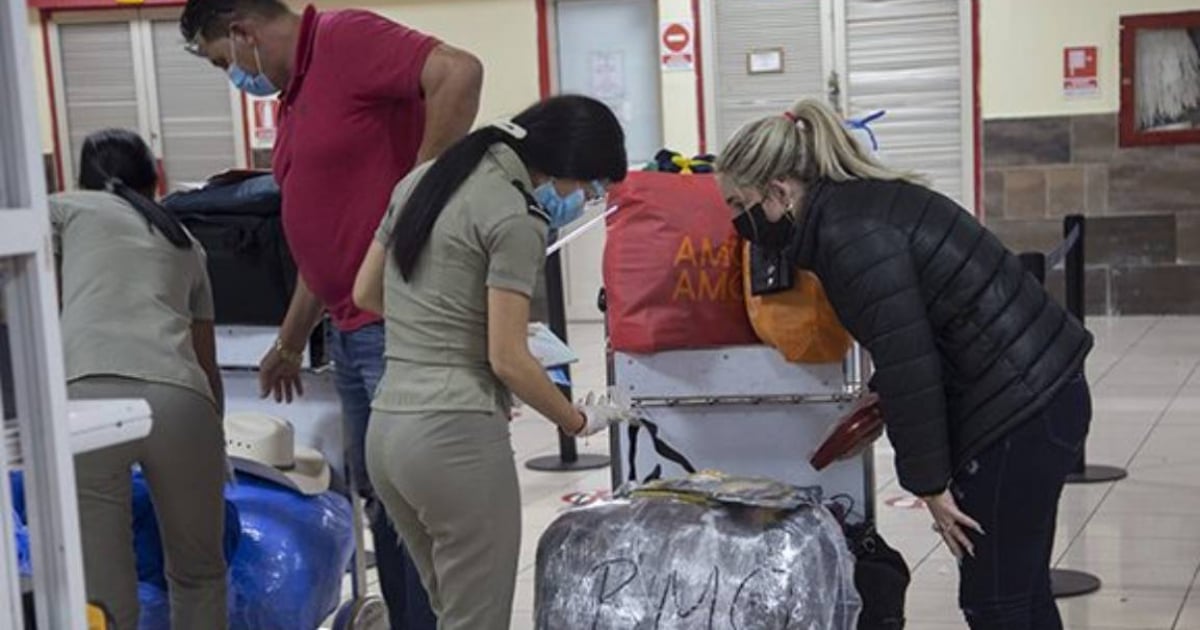The severe economic crisis in Cuba has compelled the government to extend and broaden exceptional measures for importing essential goods such as food, medicine, and medical supplies under a customs exemption regime. This policy, in effect until January 31, 2025, highlights the dire situation on the island and underscores the deteriorating living conditions for its people.
The Official Gazette published on September 28, 2024, emphasizes the continuation of these relaxations, initially implemented temporarily in 2021 after the July 11th protests, but now extended for a longer period with more specific details on the exempted products.
Extended Measures from 2021 to 2024
In July 2021, amid the COVID-19 pandemic and significant political tension, the government introduced exceptional measures allowing citizens to import food, hygiene products, and medicine for non-commercial purposes, exempt from customs duties. The 2021 exemptions were only valid until December of that year, addressing urgent shortages caused by the health crisis and the alleged "tightening of the U.S. blockade."
However, by 2024, the scope of these measures has expanded, extending their duration until January 2025. This change reflects a crisis that not only persists but has worsened.
Current Economic Context and Expanded Exemptions
The current situation in Cuba is particularly critical. Prolonged economic hardships, exacerbated by an energy crisis, scarcity of basic goods, and the collapse of strategic sectors like agriculture and industrial production, have led the government to adopt more extensive and detailed customs exemptions.
While the 2021 relaxations focused on allowing the import of general food, hygiene products, and medicine, the 2024 resolutions include a much broader range of specific medical devices and health-related products. This highlights the severe healthcare crisis and the urgent need to supply the country with essential materials that can no longer be produced domestically or easily acquired in the national market.
Among the tax-exempt products in 2024 are diverse medical equipment such as glucometers, oximeters, syringes, portable ventilators, and dental prostheses, underscoring the urgent need for these supplies in a society facing significant deterioration in its public health system.
Facilitating Imports Amid Extreme Poverty
The resolutions also allow individuals to send and receive these products via air, sea, or postal routes, facilitating the flow of supplies from abroad, where the Cuban diaspora has played a crucial role in supporting families on the island.
In addition to medical product exemptions, 2024 also renews measures permitting non-commercial imports of food and hygiene items without limits on their value or weight when transported as accompanied baggage. Individuals can bring up to 50 kilograms of these goods without paying customs duties, a considerable increase from the 10 kilograms authorized in 2021 for medicines.
The extension of these relaxations until January 2025 implicitly acknowledges that the country's economic conditions will not improve in the short term.
Citizens Forced to Import What the Government Cannot Provide
The comparison between the 2021 and 2024 measures reveals a clear evolution in the Cuban government's customs policies. While the 2021 measures were temporary and limited in scope, the current provisions recognize that the crisis has become chronic.
The worsening living conditions, particularly in access to food and healthcare, have forced the government to indefinitely extend policies that were initially considered emergency measures.
The 2024 resolutions confirm the severity of Cuba's economic crisis and the government's inability to provide essential goods to its population. Although these temporary measures aim to alleviate shortages, they also highlight the country's growing dependence on imports and the support of the Cuban diaspora.
The prolongation and expansion of customs exemptions essentially serve as an official acknowledgment of Cuba's economic precariousness and a desperate measure to meet the most basic needs of its population amid an acute humanitarian crisis.
